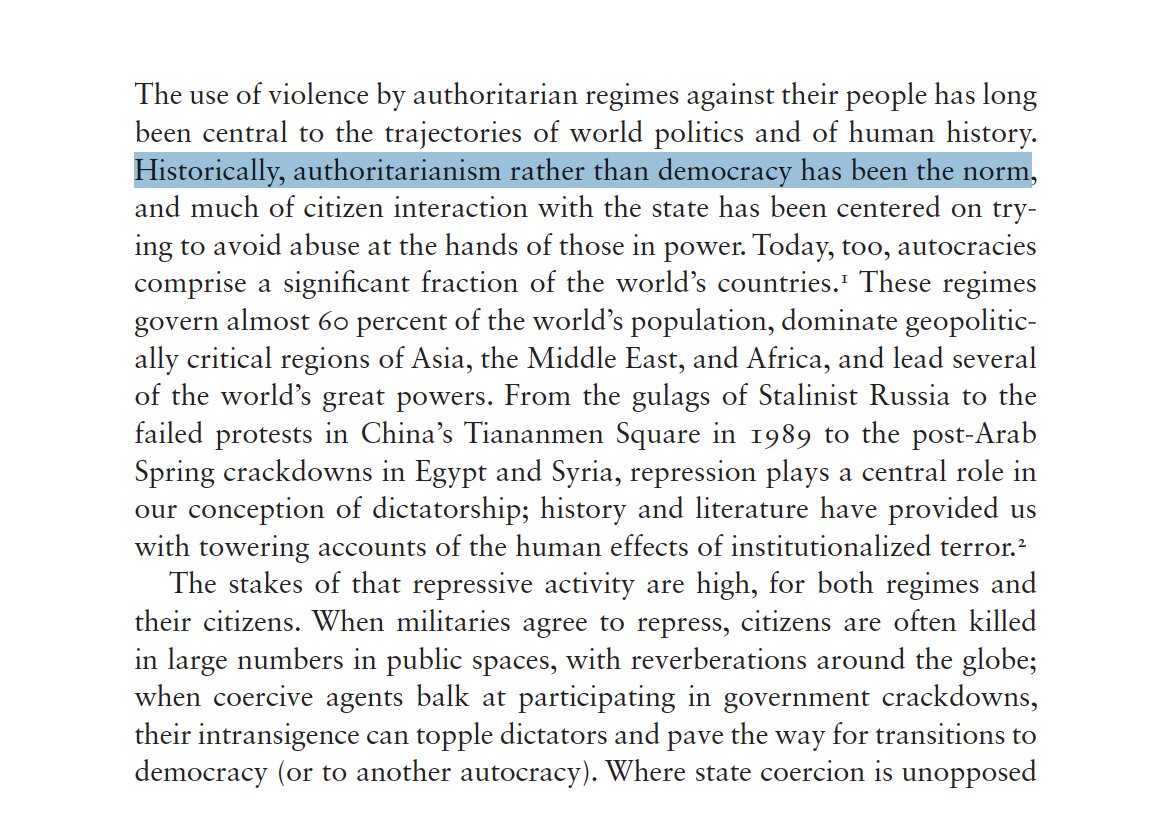
For those watching protests in Cuba: mass protest is necessary, but often not sufficient to get democratization. History/polisci/statistics tell us that a lot will hinge on elite & police/military response to the protests.
https://twitter.com/JayUlfelder/status/1414396437731975168
Most autocrats (65%) fall to other elites; @MilanSvolik calculated that only about 20% of dictatorships end via popular uprising or transition to democracy.
And about 1/2 of autocracies that do fall are replaced by other autocracies. Democracy is hard, y'all.
And about 1/2 of autocracies that do fall are replaced by other autocracies. Democracy is hard, y'all.
There is a lot of good work on what causes security forces (mil, police, etc) to stay loyal to regime or defect in these crises. In my book, I found that the more representative the security force is, the harder repression becomes for frontline officers: social costs are high.
Other folks who've written on this: @RisaBrooks12 @darinself @miwahman @Yuko_Sato88 @ariesarugay @PeteWhitePolSci @esdebruin Barbara Geddes, Joseph Wright Tarek Masoud Jason Brownlee (help me out here guys I'm missing people?)
Also impt that Cuba is
a) a revolutionary regime (more durable than average); and
b) a single-party regime (usually better at controlling security forces - very few coups in Leninist party-armies for example).
These are average/baselines, not Cuba-specific.
a) a revolutionary regime (more durable than average); and
b) a single-party regime (usually better at controlling security forces - very few coups in Leninist party-armies for example).
These are average/baselines, not Cuba-specific.
Though @JayUlfelder reminds us that single-party regimes *may* be more likely to buckle to popular protest specifically:
https://twitter.com/JayUlfelder/status/1414397406238683138?s=20
Geddes et al find that in post-Cold War period, military dictatorships that fail are most likely to democratize; personalist ones least likely. Party regimes are in the middle in terms of chance of democratization (conditional on regime failure to begin with). 

Another impt issue here is that the Cuban regime has used int'l hostility as a legitimation strategy (& justification for suppressing political opposition). 1/2
On this point, see @BertHoffmann's paper: files.ethz.ch/isn/136415/wp1…
On this point, see @BertHoffmann's paper: files.ethz.ch/isn/136415/wp1…
"A steadfast pillar of regime legitimation strategy to portray itself as the only possible defendant of nat'l independence in face of US neocolonialism. Similarly, any calls for more political pluralism ...continue to be framed as playing into the external enemy’s hands" 2/2
• • •
Missing some Tweet in this thread? You can try to
force a refresh










